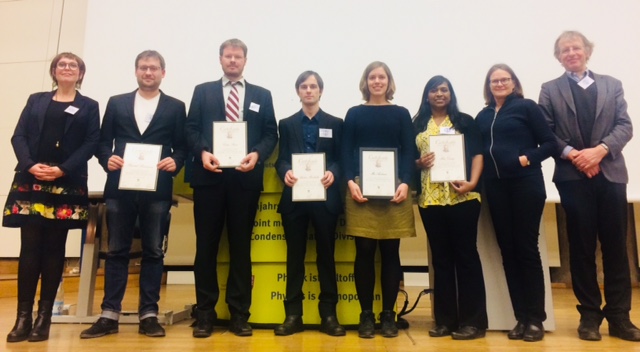NEWSFLASHES
TUM Junior Scientist Wins Prestigious Award for Computational Studies
Newsflash –
A young researcher from Technische Universität München (TUM) and Gauss Centre for Supercomputing (GCS) user recently won the Gerhard Ertl Young Investigator Award 2018.
The award—presented during the Spring meeting of the Deutsche Physikalische Gesellschaft (DPG), which ran March 11–16 in Berlin—is given for outstanding research in surface science.
Dr. Mie Andersen, currently doing her habilitation for professorship at TUM, studies the catalytic processes that can accelerate chemical reactions by modelling them at a variety of scales. To accurately model these complex interactions, Andersen must take into account both the elementary processes taking place at the catalytic surface as well as how these processes influence one another by modelling their statistical interplay, large-scale reaction rates, and their “selectivity” (competing reactions that lead to different outcomes). This theoretical modelling relies on an extensive database of density functional theory calculations, which have been carried out on the HPC systems SuperMUC (Leibniz Supercomputing Centre) and JURECA (Jülich Supercomputing Centre).
(Project leader: Prof. Karsten Reuter, Lehrstuhl für Theoretische Chemie, TUM).
